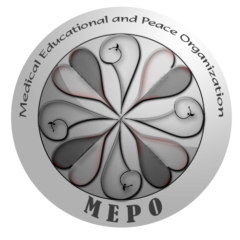- Idealism is the only safe platform to maintain our humanity and finest principles.
- Idealism must be accompanied by optimism, hope and faith.
- Idealism should trigger the noblest achievement of human beings than previously thought possible.
- But, Idealism by itself is only idealistic, not practical, not quite correct…
Instead, Idealism can become functional through the 3 p’s: perseverance, passion and a practical mind.
What it means to have functional idealism and be a functional idealist:
- Functional idealism means having a source of energy in the face of disappointments.
- Your personality becomes the major asset for your idealism.
- There is something strange in the structure of thinking that makes the impossible possible: forceful waves of love.
- It requires fluidity. Inspired by Taoism, flowing with time.
- It means taking a comprehensive approach to the finest angles of life, paying attention to protecting a tree, a bird, to pay attention to the conversation of a simple taxi driver, or read a story to a child, or watch goldfish swim in the water and consider all as part of life and part of you and vice versa.
- Whatever and whoever is in front of you is part of your destiny. Do not reject them.
- Being mindful of the people in your life, don’t try to change them but rather create a dynamic and optimistic change in yourself. What may be considered simple and yet is so vital in life, like fresh air and water, is so important and consequential in pursuing the finest philosophy of life.
- Ideas are transferred from the realm of illusion to the realm of possibilities.
- What you wish would have happened will happen.
- The mind flows freely and openly.
- It means having conviction, commitment, decision, action.
- Functional idealism is a shield that protects you from sarcasm, cynicism, and disbelief.
- It means not letting your idealism to be eroded by others’ negative energy and low scale reasoning.
- It means knowing that there is no turning back, no other way to be and to know other than your highest self.
- The Creator was a dreamer. Before creation, was He being idealistic? Why create? What use? What would be accomplished? Yet creation became a reality.
- There is no vacation of the mind. It means consciously living, focusing on the path.
- The path should not about ‘me.’ It is about a bigger picture of things.
- Don’t fail the idea.
- People come and go, but ideas and ideals last forever.
What does it take to be a functional idealist?
- It is absolutely cost-free.
- The first requirement is to produce a functional idealist out of yourself, separating from delusion.
- Invest part of yourself.
- Take it one step at a time.
- Be focused with a vision that is not ego-based.
- Don’t be afraid – fear is the enemy of functional idealism.
- Don’t allow practicalities and pragmatism to become limitations; the road does not end in pragmatism.
- Tell dreamers it can really happen.
- Patience. Maintain your vision over time.
- Hold no discriminatory views, whether religious, cultural, or scientific.
- Prepare for the journey through dialogue (internal or external), and the energy shifts from the abstract to functional.
- Pay attention to all small details that illuminate the path and the ideal.
- Don’t be limited to here and now.
- Prepare for every occasion that arises, listen, speak your mind, accept, be prepared to change, to love, to defy, to think, to write, to rest.
- Avoid dogma, don’t be dogmatic – BUT don’t compromise principles.
- Expend and empower your principles over time, not through immediate or sudden implementation.
- Keep a clear, sincere and transparent heart which will attract people to you, to your ideas, your dreams – even though they may seem “impossible.”
- We don’t need to push the earth to turn it into tomorrow. It happens by itself. The big things are being taken care of. We are forgetting that if we just take care of the small things, the dream comes true. It’s that simple.
Mostafa Vaziri,
Kabul, January 2003
Revised Kathmandu, November 2012
